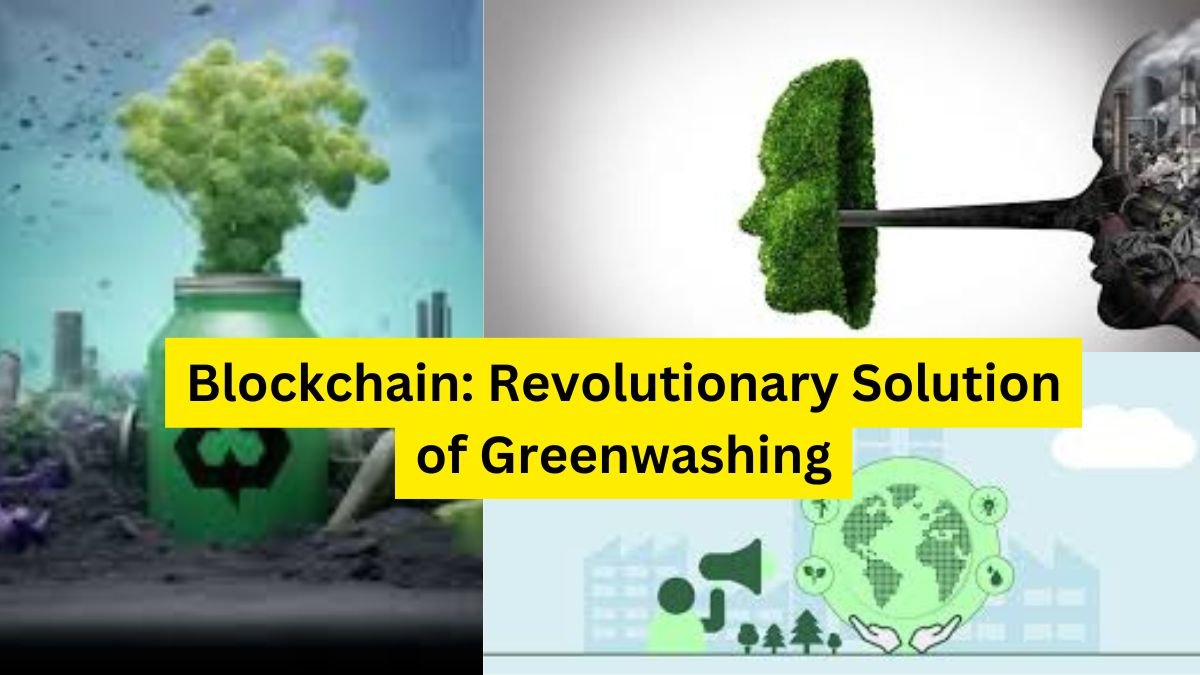Greenwashing, the practice of falsely advertising products as sustainable, endangers the integrity of sustainable markets, stifles efforts to combat climate change, and jeopardizes social justice.
Misleading claims that portray non-sustainable products as “green” can seriously undermine consumer trust, lowering the perceived value of genuine green products and limiting consumers’ ability to make informed, sustainable decisions. This loss of trust transforms markets, which could otherwise drive environmental sustainability, into ineffective entities.
Blockchain: Revolutionary Solution
The part of blockchain in mollifying green washing exploration indicates that furnishing consumers with dependable, transparent, traceable, and tamper-evidence product information can significantly alleviate the adverse goods of washing, particularly in the ecological food sector. To authentically advance the Green Shift and effectively combat washing, it’s essential to harness technologies like blockchain Blockchain technology offers a more robust result against the pitfalls of green washing than traditional instrument systems.
A Powerful Tool to Combat Greenwashing in Sustainable Markets
By authenticating product information, blockchain not only encourages the development of sustainable products but also protects the intellectual property rights of green suppliers and guarantees a harmonious force of vindicated green products. The impact on credibility and request dynamics The frequency of green washing jeopardizes the credibility of products, brands, and institutions, hanging the pursuit of a sustainable future.
Sustainability credentials of the product
As former U.S. Vice President Al Gore stressed, the proliferation of misleading sustainability claims could oppressively stymie climate progress. The provocation to mark non-sustainable products as’ green’ arises from a desire to attract a growing demographic of sustainability-conscious consumers, particularly millennials, who frequently predicate their purchasing opinions on the sustainability credentials of products, therefore adding the appeal of green washing for companies.
Challenges with traditional instruments The effectiveness of traditional labels and instruments is decreasing under scrutiny. These systems constantly warrant robust information support and authoritative enforcement, rendering them less effective in an encyclopedically connected request. In discrepancy, blockchain technology offers a dependable and effective volition.
Its decentralized and inflexible tally allows consumers to singly corroborate the sustainability claims of products, enabling them to make well-informed opinions. Addressing green washing and advancing the green shift with blockchain Reports from the European Commission and colorful studies accentuate the frequency of misleading green dispatches, with numerous online claims proven to be inaccurate or unwarranted. likewise, the investment strategies of major environmental, social, and governance finances have been criticized for including companies with dubious sustainability practices.
- The need for ongoing exploration and monitoring Regarding request dynamics, perceived green washing creates conditions where consumers are dissuaded from making their intended sustainable purchases.
- This leads to request dysfunction akin to the’ failures’ problem described in the seminal 1970 paper by Nobel Laureate George Akerlof.
Research suggests that access to transparent, traceable, and tamper-evidence information can significantly palliate perceived green washing. While instruments remain potentially effective, their enforcement is decreasingly grueling in a global trade environment.
Employing a blend of strict instrument enforcement alongside blockchain-enhanced information access can bolster consumer confidence and enhance the request viability of authentically sustainable products. also, the study underscores the necessity of covering request geste
to reduce green washing comprehensions, pointing to the critical ongoing need for exploration in this vital area of request sustainability.
Key Impacts of Greenwashing
| Impact Area | Consequences |
|---|---|
| Consumer Trust | • Undermines confidence in genuine green products • Reduces ability to make informed decisions |
| Market Dynamics | • Weakens sustainable market effectiveness • Creates market dysfunction |
| Environmental Progress | • Stifles climate change efforts • Hampers sustainable development |
| Social Justice | • Compromises ethical consumption • Affects vulnerable communities |
| Aspect | Traditional Systems | Blockchain Technology |
|---|---|---|
| Verification | Manual, centralized | Automated, decentralized |
| Transparency | Limited | High |
| Traceability | Difficult | Built-in |
| Tampering Risk | Higher | Lower |
| Enforcement | Challenging globally | Consistent globally |
What is greenwashing?
It is the practice of falsely advertising products as environmentally friendly or sustainable when they are not.
Why do companies engage in greenwashing?
Companies often greenwash to attract sustainability-conscious consumers, particularly millennials, who base purchasing decisions on environmental credentials.
How does blockchain help combat greenwashing?
Blockchain provides transparent, traceable, and tamper-proof product information, allowing consumers to verify sustainability claims independently.
What makes traditional anti-washing measures less effective?
Traditional systems lack robust information support and face enforcement challenges in global markets, making them less reliable than blockchain-based solutions.
